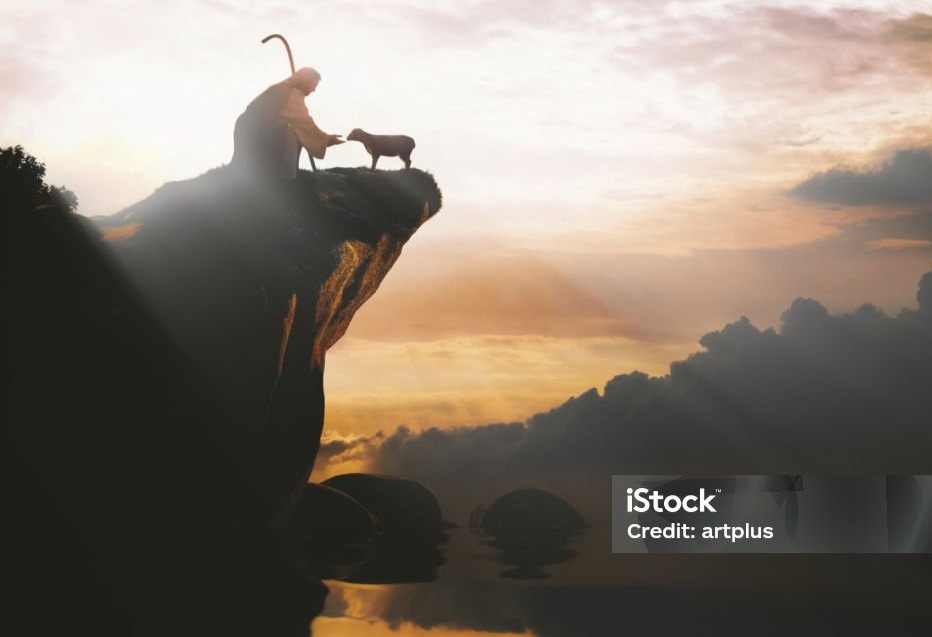Jesus: the Messiah – through the lens of the Holy Quran

Christmas is round the corner and the iconic Christmas tree at the Rockefeller Center is dazzling with ornaments and lights. Also, the city of New York has just elected a new mayor and while it has been charmed by his oratory many are absolutely panicked, as if an alien has taken control of the famous city. Understandably, because the West sees Muslims and Islam antithetical to everything they believe and practice. It’s interesting how the usual globe trotters have completely shut their connection to the Middle East, which is not only the birthplace of Jesus but also where he lived and preached. The city of Bethlehem, which is situated in the West Bank must offer a rich spiritual experience. It is worth remembering how the disciples of Jesus travelled to distant lands to preach his universal message of love, and worship of an Unseen but All Knowing and All Hearing God. Christianity, initially reached Europe in the 1st century A.D. and by the 3rd century it became a significant religion in the urban centres like Carthage (Tunisia- Africa) and Rome.
The lost connection of today’s believers with a region dotted with religious history certainly narrows their understanding of the religion itself. Abrahamic religions Judaism, Christianity, and Islam share more common ideologies than differences. Not many would know that the Holy Quran (religious book of Muslims), which was revealed to the last Prophet Muhammad PBUH, has many references to the revered Mary (Maryam) and her son, Prophet Jesus - his life, his preaching, and his miracles. The Quran relives the sacrifice of Mary, through its verses. Not only does it talk about the Messiah (Jesus) but also his mother and her lineage. The third chapter of the Holy Quran is titled Surah Ali- ‘Imran. It narrates the story of Imran’s wife (Mary’s mother), who promised the Lord to dedicate her unborn child to the cause of serving God. She was surprised when she gave birth to Mary (Maryam), a girl. Her amazement is described in the following verses,
“My Lord! I have given birth to a girl,”—and Allah fully knew what she had delivered—“and the male is not like the female. I have named her Mary, and I seek Your protection for her and her offspring from Satan, the accursed.” Verse-3:36
And the narration continues,
“So her Lord accepted her graciously and blessed her with a pleasant upbringing—entrusting her to the care of Zachariah. Whenever Zachariah visited her in the sanctuary, he found her supplied with provisions. He exclaimed, “O Mary! Where did this come from?” She replied, “It is from Allah. Surely Allah provides for whoever He wills without limit.” Verse-3:37
As a woman and a mother, it feels special how God exemplifies the sacrifice of not just Mary but her mother before the miracle of the birth of Jesus. And further, how beautifully Jesus defends his mother by talking while still a baby in a cradle.
So she pointed to the baby.
They exclaimed, “How can we talk to someone who is an infant in the cradle?”
Jesus declared, “I am truly a servant of Allah. He has destined me to be given the Scripture and to be a Prophet.
He has made me a blessing wherever I go, and bid me to establish prayer and give alms-tax as long as I live, and to be kind to my mother. He has not made me arrogant or defiant.
Peace be upon me the day I was born, the day I die, and the day I will be raised back to life!”
It’s interesting how the Quran calls God’s Prophets both warners of the doomsday and the harbingers of glad tidings. Throughout its narration, the anecdotal accounts of the Prophets are weaved to evoke rational thoughts in order to answer the purpose of human creation and its desirable end. But, sometimes zealous followers of one belief system spend more energy in attacking other beliefs than following their own. Etched in my adolescent memories are undesirable discussions over sacrilege literature and loathsome caricatures that were meant to hurt rather than serve any purpose. The first response to such a hurt is to pay back and let me tell you, I strongly believed in leveling scores. Probably, it was during the time that I got my first lesson on religious tolerance from my parents. My father explained to me how my religious identity is inclusive and intertwined with other religious beliefs, and how hurting any would be hurting myself and my faith. It was years later, reading verse 5:110 of the Quran, that I truly understood what he meant. It translates as follows:
And ˹on Judgment Day˺ Allah will say, “O Jesus, son of Mary! Remember My favor upon you and your mother: how I supported you with the holy spirit so you spoke to people in ˹your˺ infancy and adulthood. How I taught you writing, wisdom, the Torah, and the Gospel. How you molded a bird from clay—by My Will—and breathed into it and it became a ˹real˺ bird—by My Will. How you healed the blind and the lepers—by My Will. How you brought the dead to life—by My Will….
Jesus, is called Messiah in another verse and there is extensive Hadith (documented sayings of Prophet Mohammad PBUH) of his return during the end times to destroy antichrist (Dajjal) and establish a just rule. Islam draws a clear line between the Creator and the created and sometimes other belief systems find it challenging to accept. And surely, the All Knowing has answered this difference among the belief systems as inherent and a continued one, which will be eventually settled on the Day of Judgement. Until then, the message of inclusivity of all and consideration for the vulnerable will keep resonating in the message of Jesus. It is time to remember and celebrate it louder than ever.
0 Comments Add a Comment?